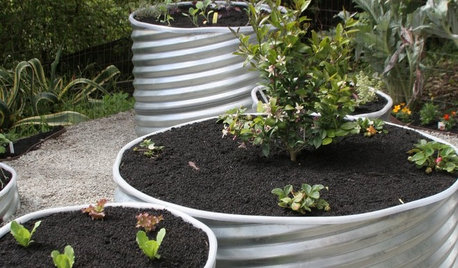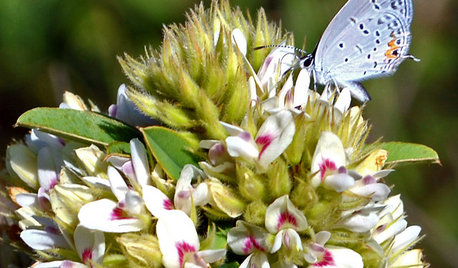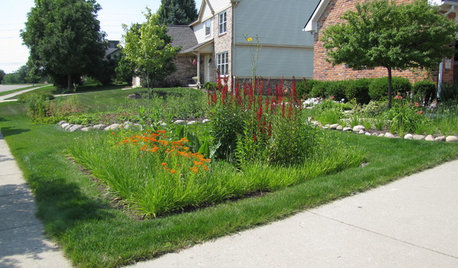Good Soil Health = ?
angelady777 (Angela) - Zone 6
15 years ago
Related Stories

FARM YOUR YARDHow to Get Good Soil for Your Edible Garden
The nutrients in your soil feed the plants that feed you. Here are tips on getting it right — just in time for planting season
Full Story
GARDENING GUIDESThe Poop Scoop: Enrich Your Soil With Good Old Manure
Get over the ick factor already — this natural super-ingredient for soil has so many benefits, you'll wonder why you ever went chemical
Full Story
CONTAINER GARDENSContainer Gardening Basics: The Dirt on Soil
Learn the types of potting soil available and the best mixes to help your containers thrive
Full Story
GARDENING GUIDESHow to Stop Worrying and Start Loving Clay Soil
Clay has many more benefits than you might imagine
Full Story
GARDENING GUIDESGet the Dirt on Your Garden’s Soil
Understand how your soil supports your plants so you can ensure your garden’s success
Full Story
GARDENING GUIDESGrow a Beautiful Garden in Alkaline Soil
Got alkaline soil? Learn how to manage it and the many beautiful plants that will thrive in this ‘sweet’ soil
Full Story
GARDENING GUIDESGardening Solutions for Heavy Clay Soils
What’s a gardener to do with soil that’s easily compacted and has poor drainage? Find out here
Full Story
GARDENING GUIDES5 Prairie Wildflowers That Can Heal Your Soil
Get free, organic soil fertilizer with nitrogen-pumping plants that draw pollinators too
Full Story
GARDENING GUIDESHow to Pick a Mulch — and Why Your Soil Wants It
There's more to topdressing than shredded wood. Learn about mulch types, costs and design considerations here
Full Story
LANDSCAPE DESIGNHow to Shape a Rain Garden and Create the Right Soil for It
Learn how to grade, lay out and amend the soil in your rain garden to support your plants
Full StorySponsored






mike_in_paradise
shebear
Related Professionals
Rancho Palos Verdes Landscape Architects & Landscape Designers · Springfield Landscape Contractors · Alamo Landscape Contractors · Live Oak Landscape Contractors · Lynn Landscape Contractors · Parkland Landscape Contractors · Rochester Landscape Contractors · West Covina Landscape Contractors · North Hills Landscape Contractors · Clermont Fence Contractors · Glenpool Fence Contractors · North Miami Beach Fence Contractors · Oldsmar Fence Contractors · Ponte Vedra Beach Fence Contractors · Saint Louis Park Fence Contractorsmedontdo
jbest123
medontdo
shebear
jbest123
medontdo
anniesgranny
sinfonian
medontdo
engineeredgarden
medontdo
sinfonian
medontdo
carolynp
mike_in_paradise
mike_in_paradise
angelady777 (Angela) - Zone 6Original Author
anniesgranny
greenbean08_gw
mike_in_paradise
mike_in_paradise
mike_in_paradise
mike_in_paradise